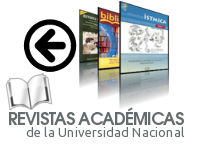Raúl Fornet-Betancourt and the project of an intercultural transformation of philosophy from the Life World
DOI:
https://doi.org/10.15359/siwo.14-1.7Keywords:
Intercultural philosophy, intercultural dialogue, life world, latin american philosophy, Raúl Fornet-BetancourtAbstract
-Raúl Fornet-Betancourt develops and proposes a project of intercultural transformation of philosophy that leads to the progressive understanding of cultures and respect among all human beings regardless of their context. This is the function of philosophy as a reason; not understood as the European universal reason, but as a diversity of ways of understanding the world made by diverse cultures from their own situation and position in the world and life. In order to make such a proposal, it is necessary to address the central points that concern interculturality. First, intercultural philosophy is of relevance. In second place, intercultural dialogue and the encounter with the “other”, because it is through both means that one comes into contact with others and establishes a communication based on respect for other cultures, even if they differ with their own. Third, and what is most relevant to this work, interculturality has a close relationship with the World of Life, since it is through it that one can explain why each person has a different perspective on the world. Fourth and last, Fornet-Betancourt believes that theory should be put into practice, so it is necessary to address the usefulness of intercultural philosophy in a world where cultures are constantly threatened by the globalizing wave.
References
Beorlegui, C. 2010. Historia del pensamiento filosófico latinoamericano. Una búsqueda incesante de la identidad. Bilbao: Universidad de Deusto.
Blanco, J. 2009. Horizontes de la filosofía intercultural. Aportes de Raúl Fornet-Betancourt. A Parte Rei, 64 (Julio), 1-38.
Fornet-Betancourt, Raúl. 2001. Transformación intercultural de la filosofía. Bilbao: Desclée de Brouwer.
Fornet-Betancourt, Raúl. 2004. Crítica intercultural de la filosofía latinoamericana actual. Madrid: Trotta.
Fornet-Betancourt, Raúl. 2006. Interculturalidad o barbarie. 11 tesis provisionales para el mejoramiento de la teorías y prácticas de la interculturalidad como alternativa de otra humanidad. Comunicación, 4, 27-49.
Fornet-Betancourt, Raúl. 2007a. La filosofía intercultural desde una perspectiva latinoamericana. Solar, (3), 23-40.
Fornet-Betancourt, Raúl. 2007b. Interculturalidad y religión. Para una lectura intercultural de la crisis actual del cristianismo. Quito: Abya-yala.
Fornet-Betancourt, Raúl. 2007c. Reflexiones de Raúl Fornet-Betancourt. Sobre el concepto de interculturalidad. México: Consorcio Intercultural.
Fornet-Betancourt, Raúl. 2009. Interculturalidad en procesos de subjetivización. Reflexiones de Raúl Fornet-Betancourt. México: Consorcio Intercultural.
Fornet-Betancourt, Raúl. 2012. Interculturalidad, crítica y liberación. Aachen: Mainz.
Fornet-Betancourt, Raúl. 2015. La función cultural de la filosofía en tiempos de crisis. Topologik, 18, 8-18.
Fornet-Betancourt, Raúl. 2019. Con la autoridad de la melancolía. Los humanismos y sus melancolías. Aachen: Mainz.
Madrigal, V. 2008. Una aproximación a la filosofía intercultural de Raúl Fornet-Betancourt: Retos que se le plantean a la teología. Revista de Teología Siwô, 287-313.
Published
How to Cite
Issue
Section
License
Política propuesta para Revistas que ofrecen Acceso Abierto
Los autores que publican en esta revista están de acuerdo con los siguientes términos:
1. Esta revista provee acceso libre bajo licencia Creative Commons Reconocimiento-NoComercial CC BY - NC. Usted como persona autora conserva sus derechos de autor. Esta licencia permite que otros remezclen, adapten y desarrollen su trabajo sin fines comerciales, siempre y cuando le den crédito y licencien sus nuevas creaciones bajo los mismos términos
2. Los autores pueden establecer por separado acuerdos adicionales para la distribución no exclusiva de la versión de la obra publicada en la revista (por ejemplo, situarlo en un repositorio institucional o publicarlo en un libro), con un reconocimiento de su publicación inicial en esta revista.
3. Se permite y se anima a los autores a difundir sus trabajos electrónicamente (por ejemplo, en repositorios institucionales o en su propio sitio web) antes y durante el proceso de envío, ya que puede dar lugar a intercambios productivos, así como a una citación más temprana y mayor de los trabajos publicados (Véase The Effect of Open Access) (en inglés).











